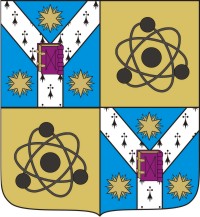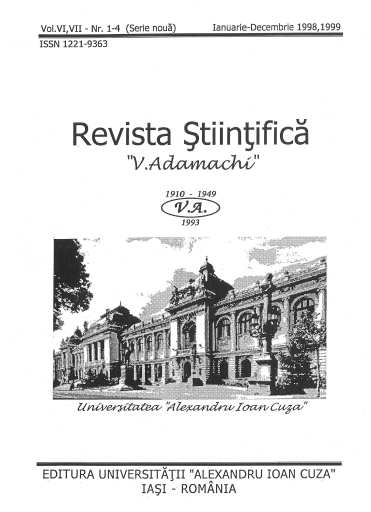 Facultatea de Fizică
Facultatea de Fizică
Universitatea "Al.I.Cuza" Iaşi
|
| Titlu: Influence of a Transversal Magnetic Field on a Fireball Dynamics in Low-Temperature Discharge Plasma |
| Autori: Angela Damoc2, Valentina Closca3, Teodora Teslaru1, Oana Niculescu1, Dan-Gheorghe Dimitriu1 |
| Afiliere: 1Physics, Alexandru Ioan Cuza University, Iasi, Romania 2Science, Sf. Francisc de Assisi Romano-Catholic Theological College, Roman, Romania 3Physics, Technical College, Radauti, Romania |
| Abstract: By applying a positive voltage to an electrode immersed into a steady-state plasma, an intense luminous almost spherical structure appears in front of it. Such a structure was called fireball or ball of fire. Experimental investigation proved that a fireball consists of a positive nucleus (an ion-rich plasma) confined by an electrical double layer. The double layer is a nonlinear potential structure consisting of two adjacent layers opposite sign space charges, between which a potential step appears, giving rise to an electric field. Up to a certain threshold value of the voltage applied to the electrode, the fireball passes into a dynamic state, consisting of periodical disruptions and re-aggregations of the double layer at its border. This dynamics determines coherent oscillations of the plasma parameters (plasma potential, plasma density, current through the electrode). Previous studies performed in axial magnetic fields (magnetic field lines perpendicular to the electrode surface) have shown that the structure elongates in the direction of the magnetic field lines, then being named firerod. The axial magnetic filed had a strong influence on the condition of the firerod appearance, as well as on the characteristics of its dynamics. Here, experimental results are shown on the behavior of a fireball in a uniform transversal magnetic field. The magnetic field was generated by a pair of Helmholtz coils, situated in front of the electrode. Depending of the values of the magnetic field intensity, different types of oscillations of the current through the electrode were recorded, in connection with the nonlinear dynamics of the fireball. At a certain value of the magnetic field intensity, a splitting of the fireball into multiple parts was observed, so that a multiple structure appears. At high values of the magnetic field induction, the structure disappears, the electron flux towards the electrode being not enough high to maintain the structure. [1] O. Niculescu et al., Phys. Plasmas 17 ( |
Download link:
|
|
|



